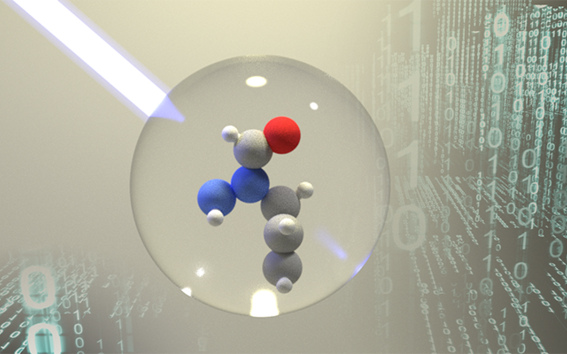CSC and Aalto University team up to create a physicist AI

The CEST group will construct an AI that learns from the plethora of
spectroscopic data already available in databases. Once trained, the
AI can make predictions of spectra instantly and at no further cost.
The CSC Grand Challenge award of 8M computer hours will allow the group to
create test spectroscopy datasets for developing, training and
testing the AI before it is ready for large-scale applications.
Spectroscopy probes the interaction between radiation and matter. It
is the primary method to scientifically study the laws of nature,
discover new phenomena and characterize the properties of substances
or materials.
Conventional spectroscopies are slow and expensive, often requiring
large facilities such as synchrotrons or supercomputers. In the
Department of Applied Physics, CEST run the "Artificial Intelligence
for Spectroscopy” project that employs deep learning neural
network-based artificial intelligence (AI) methods to harvest the
wealth of spectroscopic data that has already been recorded.
When deployed, AI spectroscopy would complement conventional
spectroscopy to greatly accelerate the analysis of materials, and
suggest better candidate materials to boost existing technologies
based around light absorption. For example, it could help design
more effective optical coatings or increase the power conversion
rates in solar cells.
More information:
Patrick Rinke, professor
patrick.rinke@aalto.fi
Read more news

Apply Now: Unite! Visiting Professorships at TU Graz
TU Graz, Austria, invites experienced postdoctoral researchers to apply for two fully funded visiting professorships. The deadline for expressions of interest is 20 February 2026, and the positions will begin on 1 October 2026.Soil Laboratory Exhibition – Exploring the Dialogue Between Human and the Earth in Utsjoki
Soil Laboratory explores the relationship between humans and the earth as a living landscape through ceramic practices in Utsjoki.
The Finnish Cultural Foundation awarded grants for science and art
A total of 15 individuals or groups from Aalto University received grants






